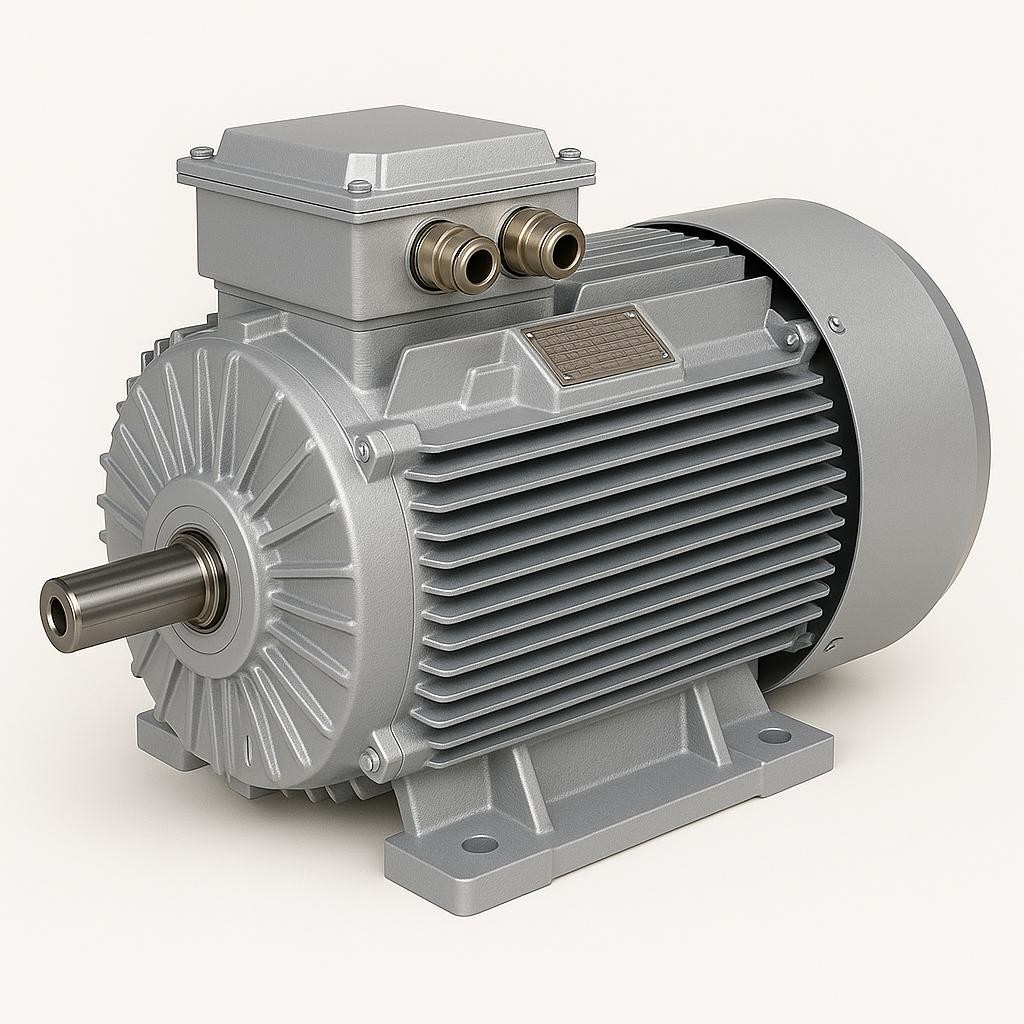CAST IRON HOUSING FEATURES FOR ELECTRIC MOTORS
Contact: +90 542 666 11 11
The performance and longevity of electric motors heavily depend on the materials used in their construction. Among the most preferred materials for motor housings is cast iron, known for its superior strength, durability, and thermal properties. Cast iron housings are a standard choice in industrial motor manufacturing due to their ability to withstand mechanical stress, external impacts, and environmental challenges.
One of the main advantages of cast iron is its high mechanical strength. This property allows the motor housing to maintain structural integrity even under high torque or heavy-duty operations. For industrial applications that demand continuous use in tough conditions—such as manufacturing lines, mining equipment, or HVAC systems—cast iron offers unmatched stability and reliability. Another significant feature is its vibration-damping capability. Cast iron naturally absorbs vibrations, which contributes to smoother and quieter motor performance. This is especially valuable in environments where noise reduction is critical, such as pharmaceutical production, laboratories, or high-precision manufacturing.
In addition to its mechanical benefits, cast iron is an excellent conductor of heat. As electric motors generate heat during operation, the housing material plays a critical role in dissipating this thermal energy. A cast iron housing facilitates faster heat transfer, helping to prevent overheating and ensuring consistent motor performance over time. By regulating temperature, it also helps avoid thermal expansion issues that could otherwise lead to internal damage.
The rigid structure of a cast iron housing also acts as a protective shield for the internal components of the motor. It protects against dust, moisture, impacts, and even chemical exposure if properly coated. Maintenance requirements are significantly reduced because the housing remains intact and functional for extended periods. In the long term, this translates into lower operational costs and fewer downtimes.
Cast iron housings are manufactured in foundries through precision casting methods. They undergo rigorous quality inspections to ensure they are free of cracks or deformations. With advanced surface treatments and anti-corrosion coatings, they can also be customized to suit environments where chemical resistance is necessary.
In conclusion, cast iron motor housings provide a range of benefits including mechanical robustness, vibration reduction, thermal efficiency, and long service life. For both manufacturers and end-users, choosing a cast iron housing means investing in reliability and performance.
You can purchase the motorcycles you desire from Drg Motor.
 English
English
 Türkçe
Türkçe

